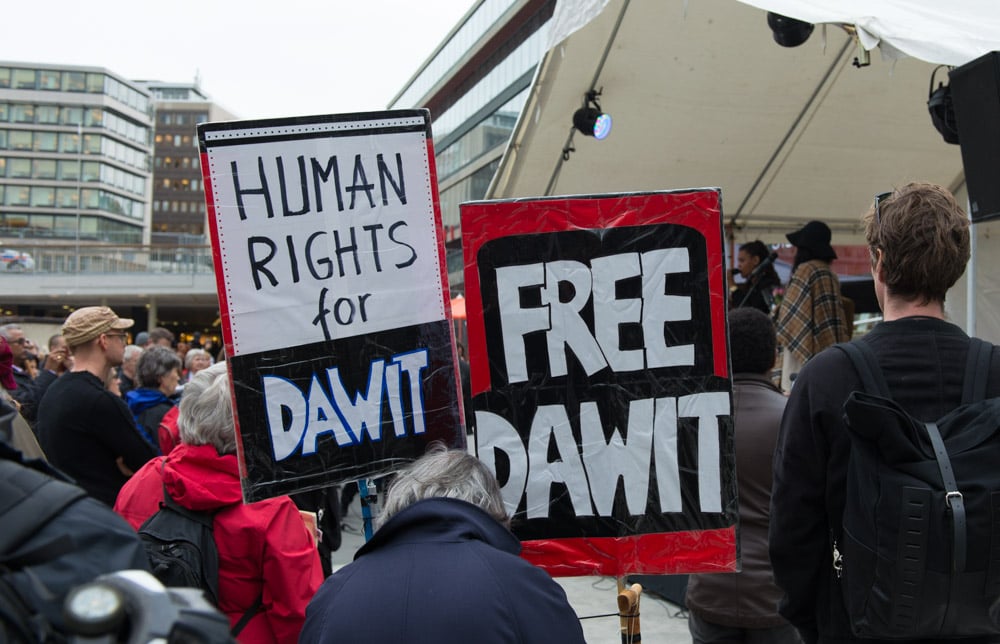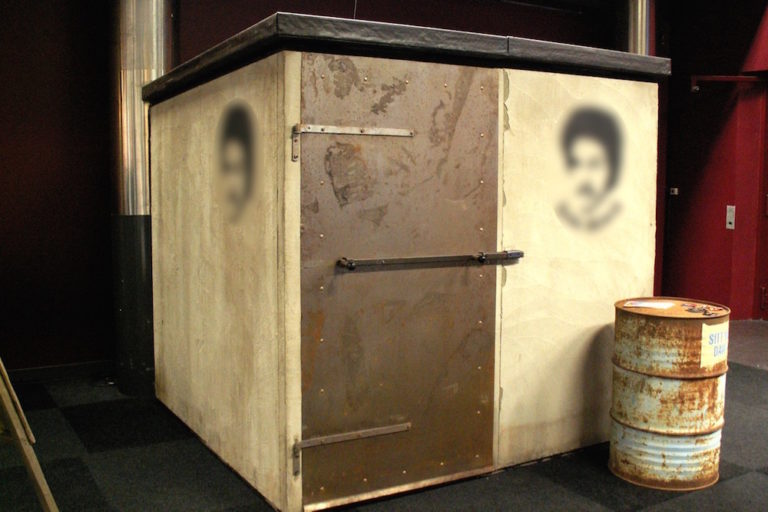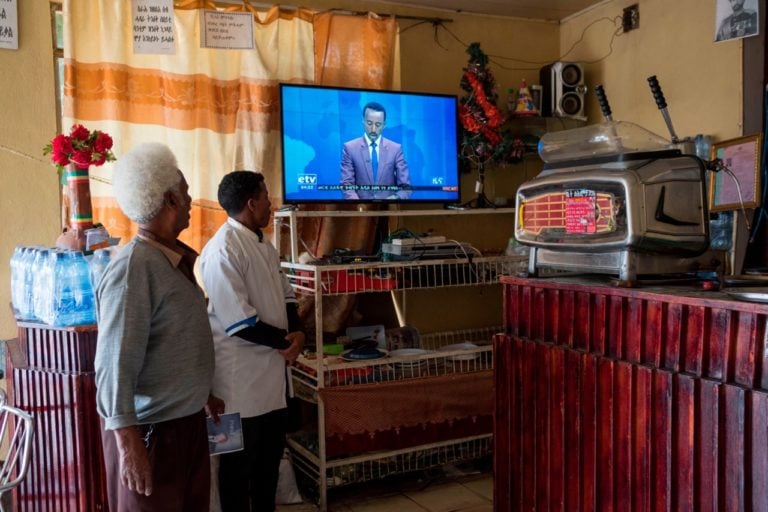That's the question 33 NGOs are asking Eritrea this World Press Freedom Day, after the Cano prize-winning journalist remains unheard from since 2005.
President Issayas Afewerki
Asmara, Eritrea
3 May 2017
Mr. President,
In September 2001, the Eritrean authorities arrested dozens of citizens who had endorsed an open letter calling for democratic reforms. Those detained were not charged with a crime, nor placed on trial, yet most of them remain incarcerated to this day. Despite widespread appeals from human rights groups and international observers, several have reportedly died in jail. On this World Press Freedom Day, we the undersigned urge you to address the plight of journalists who were swept up in this crackdown, and to grant their immediate and unconditional release.
Of particular concern is UNESCO Cano prize-winner Dawit Isaak, arrested on 23 September 2001, and who was last heard from in 2005.
A dual citizen of Eritrea and Sweden, Dawit had moved to Sweden in 1987, before returning home in April 2001. He was co-owner of Setit, a twice-weekly newspaper, and worked there as a reporter.
On 18 September 2001, the government banned the activities of all privately owned print media. During the following week, prominent public figures that had called for democratic reforms were rounded up in a series of police raids. The authorities then shuttered the newsrooms of seven independent publications in Asmara. By 27 September at least ten reporters and editors had been detained. Dawit was among the arrested reporters, and was 36 years old on the day of his arrest. He has three children.
“Dawit Isaak has spent nearly 16 years in jail, without charge or trial. I sincerely hope that with this award the world will say, ‘Free Dawit Isaak Now.” said Cilla Benkö, President of the UNESCO/Guillermo Cano World Press Freedom Prize 2017 Jury.
“Dawit is a humble man with a good heart,” according to his friend and former Setit editor-in-chief Aaron Berhane. “He never hesitated to lend a hand when someone needed it. He’s well respected for his character and elegant writing skills.”
Aaron himself barely escaped arrest and now lives in Canada. Others were not as fortunate:
Medhanie Haile, a law graduate and deputy editor of the weekly Keste-Debena, was 33 years when he was arrested. He is now feared dead due to mistreatment while in prison. His family never received his body.
Yusuf Mohamed Ali, editor of the weekly Tsigenay, was in his mid-40s. He, too, is said to have died in prison on 13 June 2003, partly due to extreme heat within his cell. Yusuf was the father of three children. His family never received his body.
Said Abdulkader, founder and editor of the weekly Admas, was in his mid-30s. In March 2004 he reportedly took his own life at the Eiraeiro detention centre. His family never received his body.
Fessehaye Yohannes was arrested four days after Isaak. A few years older than Dawit, he was also a co-owner of Setit and one of its reporters. Fessehaye was a well-known poet and playwright, and the director of a children’s group called “Circus Eritrea”. He had one child from his first marriage and two from his second. According to one account, he tried unsuccessfully to take his own life several times before he was found hanging in his cell in 2003. Another account suggests that he died on 11 January 2007, exhausted by appalling prison conditions and repeated torture. His family never received his body.
Seyoum Tsehaye was almost 50 when he was arrested. A freelance photographer and journalist, he was formerly a director of Eri-TV, and well known for his documentary of the Eritrean struggle for independence. Seyoum’s two children now live in France where they were granted asylum with their mother. They have not received updates on his whereabouts, nor on the state of his health, since his arrest.
Dawit Habtemichael was taken into custody on 25 September 2001. A cofounder and deputy editor of the weekly Mekalih, he was a physics graduate from the University of Asmara and a professional teacher. Unconfirmed reports suggest that he also died at Eiraeiro. His fate is unknown to his family.
Amanuel Asrat, a dedicated contributor to Setit before he became editor of the weekly Zemen, was in his early 30s when he was arrested on 23 September 2001. He was an agronomy graduate from the University of Asmara in 1996.
Mattewos Habteab, a mathematics graduate from the University of Asmara, was around 30 when he was arrested. He wrote for Setit before co-founding Mekalih and working as its editor-in-chief. Unconfirmed reports indicate that he also perished in custody in Eiraeiro. To date, however, his true fate is unknown.
Temesghen Gebreyesus, in his mid-30s at the time of his arrest, was a sports reporter for Keste-Debena. He is married and has one son.
Mr. President, contrary to the reports cited above, Eritrean Foreign Affairs Minister Osman Saleh insisted in an interview in June 2016 that these journalists are still alive. He said they would receive trials at the government’s discretion. Given the 15-year suspension of due process however, it is imperative that these assertions be substantiated.
In the spirit of World Press Freedom day, we ask you to either provide proof of life for these men or to confirm the circumstances of their deaths. Wherever possible, we also urge you to grant their immediate and unconditional release.
Also, as a show of good faith, we ask that David Kaye, UN Special Rapporteur on the Promotion and Protection of the Right to Freedom of Opinion and Expression, be permitted to speak with Dawit Isaak, in person or by phone, to address longstanding concerns for his mental and physical well-being. At the very least such a gesture would establish Eritrea’s willingness to move beyond years of state repression and into a new era of democratic transparency and accountability.
We thank you for your attention to this matter.
Sincerely,
Dawit is a humble man with a good heart. He never hesitated to lend a hand when someone needed it. He’s well respected for his character and elegant writing skills.Former Setit editor-in-chief Aaron Berhane
In the spirit of World Press Freedom day, we ask you to either provide proof of life for these men or to confirm the circumstances of their deaths. Wherever possible, we also urge you to grant their immediate and unconditional release.



